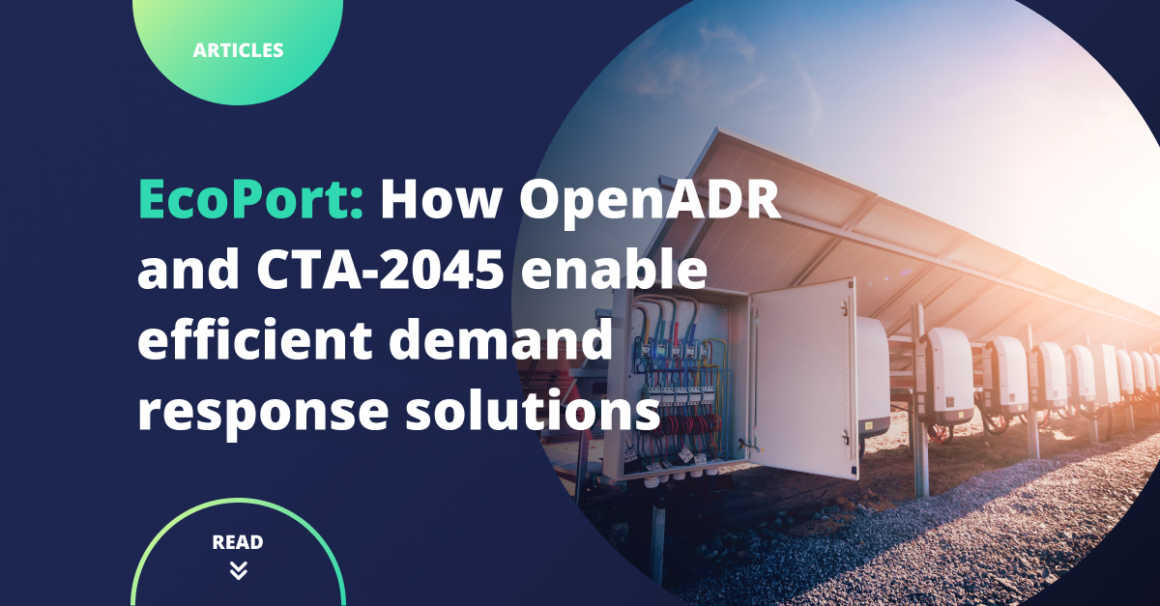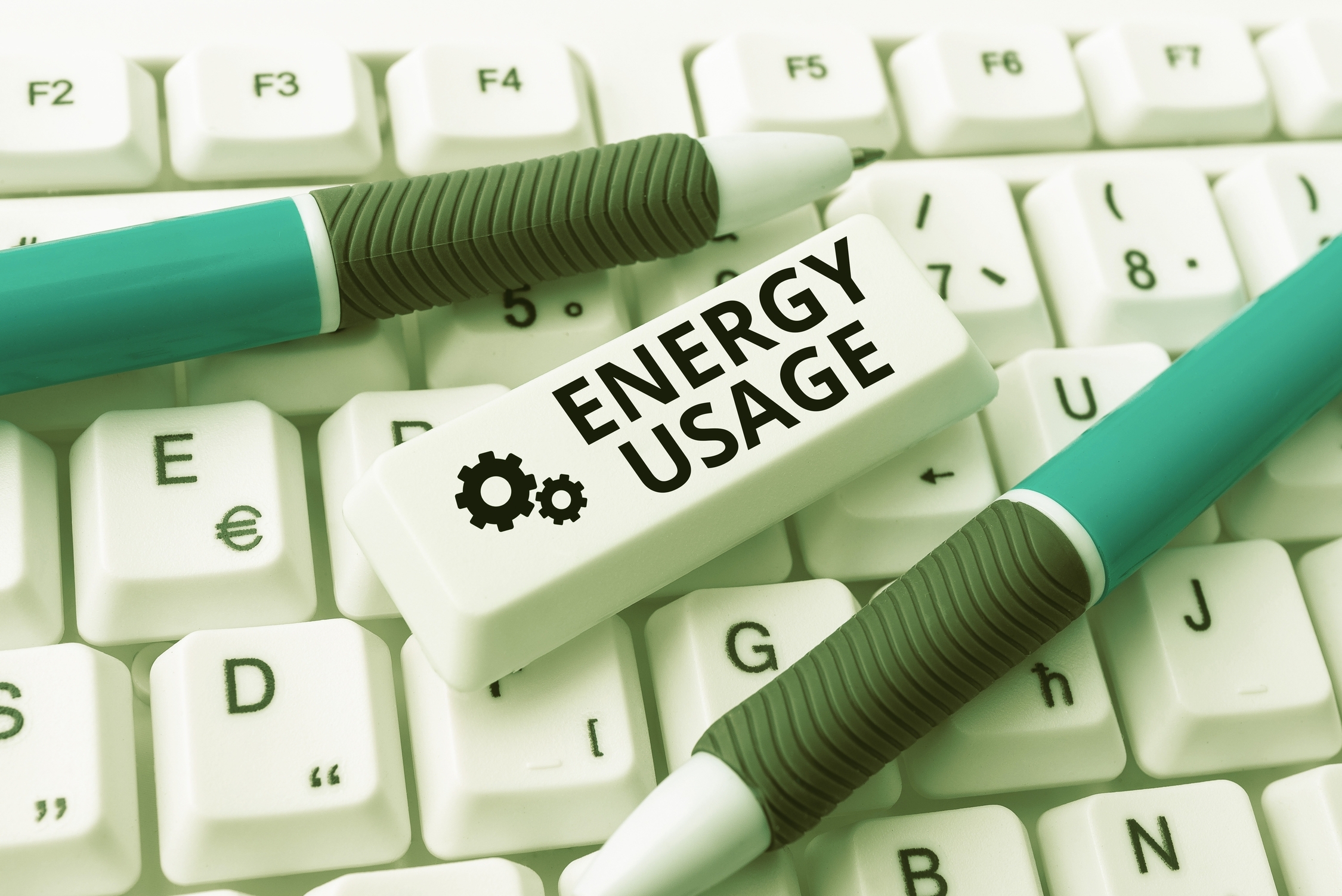EcoPort: How OpenADR and CTA-2045 enable practical and efficient demand response solutions

In today’s rapidly evolving energy landscape, standards like Open Automated Demand Response (OpenADR) and CTA-2045 have become pivotal in advancing demand response capabilities. These standards, now unified under the EcoPort brand, are revolutionizing how energy is managed, enhancing regulatory compliance, and streamlining demand response strategies. So, how is this integration driving change?
Understanding OpenADR and CTA-2045
OpenADR is a communication standard designed to exchange signals between utilities and customers. Its primary goal is to facilitate the management of peak loads, promote the integration of renewable energy, and streamline demand response operations. By creating a standardized communication protocol, OpenADR ensures that energy providers can efficiently communicate demand response signals to various devices and appliances.
CTA-2045, known as EcoPort, is a standard that allows smart devices to connect directly to energy management systems through a universal port. This interoperability promotes flexibility and adaptive energy consumption across various appliances. Together, OpenADR and CTA-2045 form a comprehensive framework that supports efficient demand response and compliance, providing both utilities and consumers with a seamless approach to energy management.
Both standards play crucial roles in enabling efficient demand response within energy management systems. OpenADR serves as the communication backbone, facilitating the exchange of signals between utilities and customers. This standard ensures that demand response signals, such as peak load reduction requests or pricing information, can be effectively communicated to a wide array of devices and appliances in a standardized manner. On the other hand, CTA-2045, or EcoPort, acts as the physical interface through which smart devices directly connect to energy management systems. By providing a universal port, this standard promotes interoperability among various appliances, allowing them to seamlessly interact with the energy grid and respond to demand response signals. Together, these standards create a robust framework that empowers both utilities and consumers to manage energy consumption efficiently, promote renewable integration, and optimize demand response strategies.
Synergy for advanced demand response: the Oregon example
A real-world example of this synergy can be found in Oregon, where utilities have implemented OpenADR programs that leverage CTA-2045-equipped devices. Local utilities focused on compliant smart water heaters and HVAC systems, which temporarily reduced energy consumption during periods of high demand. The result was a significant reduction in peak demand by over 15% during hot summer days, alleviating pressure on the grid and ensuring customers maintained a comfortable environment.
How different stakeholders benefited from this collaboration:
- Utilities: The program allowed utilities to manage grid stability in real time, reducing peak demand by leveraging OpenADR signals. This reduced the likelihood of blackouts and saved costs associated with building additional infrastructure for sporadic peaks.
- Consumers: Customers experienced minimal disruption while benefiting from reduced energy bills and incentive programs. They enjoyed energy efficiency, financial savings, and a positive environmental impact.
- Regulatory compliance: Oregon’s initiative provided a practical framework that other regions could replicate. It aligned utilities and consumers with emerging regulatory standards while reinforcing the value of OpenADR and CTA-2045 compliance.
- Sustainable impact: The reduction in peak demand helped utilities rely less on fossil fuel-powered plants, lowering carbon emissions and contributing to the state’s environmental goals.
The success of Oregon’s demand response program highlights the potential for similar initiatives nationwide. By leveraging advanced technologies and fostering collaboration among utilities, consumers, and regulators, we can create a resilient and sustainable energy future. This model demonstrates that through strategic planning and innovative solutions, the energy sector can effectively meet the challenges of tomorrow.

Compliance made simple
The integration of OpenADR and CTA-2045 not only enhances energy management but also simplifies compliance. In the United States, various state regulatory frameworks increasingly require new appliances to be compatible with these standards. Oregon and Washington have already implemented regulations mandating CTA-2045 compatibility for new water heaters and other smart appliances to ensure effective participation in demand response programs. California, known for leading energy regulations, is also considering similar requirements to broaden demand response initiatives.
In Europe, compliance focuses more on the general principles of demand response and interoperability rather than specific standards. The European Union’s Energy Performance of Buildings Directive (EPBD) and Electricity Directive emphasize open communication protocols for building automation systems. While not directly specifying concrete standards, European policies seek a level of interoperability that allows these standards to function effectively.
Achieving OpenADR certification provides a straightforward path to CTA-2045 compliance. The OpenADR Alliance offers certifications ranging from basic (OpenADR 2.0a) to advanced (OpenADR 3.0), with the latter designed for more complex interactions and faster data exchanges.
OpenADR 3.0 certification ensures that utilities and customers can seamlessly integrate these technologies into existing systems, providing advanced control and monitoring for demand response. Unlike its predecessors, OpenADR 3.0 introduces simplified pathways for incorporating OpenADR functionalities and tailors the protocol for diverse application scenarios.This standard certification ensures utilities and customers can seamlessly integrate these technologies into existing systems, offering enhanced control and monitoring for demand response.
By achieving OpenADR 3.0 certification, manufacturers can meet CTA-2045 compliance requirements while reducing redundant testing and certification. This alignment enables energy providers and appliance manufacturers to efficiently meet regulatory demands and participate in advanced energy management strategies, unlocking opportunities for sustainable grid management
The role of partners in implementation
Implementing advanced energy standards requires technical expertise and strategic planning. Partners play a crucial role in helping businesses navigate the complexities of these standards, providing deep knowledge and technical resources that ensure seamless and cost-effective pathways to compliance. Utilizing pre-certified solutions can significantly expedite the implementation process.
Codibly is one such partner, offering customized, interoperable energy solutions and renewable energy software solutions that facilitate efficient demand response participation. Partnerships like these unlock valuable benefits such as rapid integration, reduced development costs, and enhanced energy management strategies. Leveraging extensive industry experience, these partners help businesses smoothly adopt critical standards and thrive in this new era of energy management.
Interested in learning more or need help with implementing energy management standrads?
Contact Codibly today to explore tailored energy management solutions for your business.
contact us
Need expert guidance on your next energy project?
Reach out to us and discover how Codibly can offer tailored solutions to drive your business.